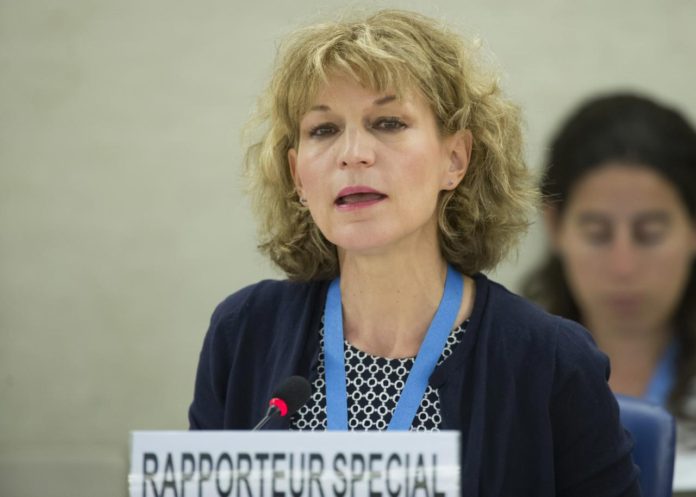The world is witnessing a “downward spiral of attacks” on journalists, spurred on by hate speech even from senior politicians, two UN experts have warned. Speaking ahead of 2 November, which has been designated International Day to End Impunity for Crimes Against Journalists, the Special Rapporteurs on arbitrary, summary and extrajudicial executions, Agnes Callamard, and on freedom of expression, David Kaye, called on States to act:
“So far this year, the world has lost more than 30 journalists to targeted attacks. In addition to taking individual lives and depriving family members of their loved ones, these attacks aim to destroy the public watchdog role of journalism that is essential to democratic society.
The attacks on journalism are widespread and deplorable. Assaults on investigative reporters, including independent journalists, freelancers and bloggers, undermine official accountability and help entrench corruption and other abuses of power.
When authorities fail to follow up such attacks with independent and impartial investigations that can bring perpetrators to justice, the killers and their allies achieve their objectives.
The attacks need to stop. So too does the public demonization of reporting and specific media outlets and reporters by political leaders at the highest levels.
Whipping up anger and distrust, or redefining journalism as a crime akin to terrorism, are steps on the path to physical attack. The end of impunity begins with a commitment at the most senior levels to stop the hateful rhetoric, end detentions and prosecutions of journalists, and take steps to bring all attackers to justice.
Our societies cannot afford to continue this downward spiral of attacks against journalists. We urge all States – in word and action – to devote resources to reverse this trend.”
Ms Agnes Callamard is Special Rapporteur on extrajudicial, summary or arbitrary executions; and Mr. David Kaye is Special Rapporteur on the promotion and protection of the right to freedom of opinion and expression. The Special Rapporteurs are part of what is known as the Special Procedures of the Human Rights Council. Special Procedures, the largest body of independent experts in the UN Human Rights system, is the general name of the Council’s independent fact-finding and monitoring mechanisms that address either specific country situations or thematic issues in all parts of the world. Special Procedures’ experts work on a voluntary basis; they are not UN staff and do not receive a salary for their work. They are independent from any government or organization and serve in their individual capacity.


 Creative Commons Attribution 4.0 International license
Creative Commons Attribution 4.0 International license